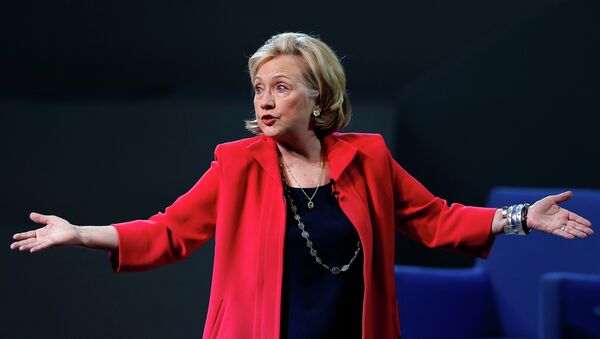On Wednesday, US intelligence officials reported that foreign governments have hacked the online presences of several US presidential candidates. Officials are working with the campaigns to tighten security as the 2016 race approaches the general election in November.
Experts suggest that Clinton’s campaign network is the most vulnerable of the candidates, offering hackers the opportunity to extort the former Secretary of State.
Cybersecurity analysts have warned that Clinton, and to a lesser extent her Republican rival Donald Trump, need to upgrade campaign network security to eliminate the risk of foreign surveillance and sabotage. Despite warnings, campaign communications for Clinton appear to be an "open orchid on the internet," according to one hacker.
Political cybersecurity fails are not new. US intelligence officials cite hacks in 2008 against candidates Barack Obama and John McCain. In 2012 intelligence officials assert that four attempted cyberattacks by Chinese hackers against Mitt Romney and President Obama were successfully thwarted.
The announcement of Clinton’s latest cybersecurity lapse came, notably, directly from the director of national intelligence. James Clapper said at the Bipartisan Policy Center that “we’ve already had some indications” that her campaign network was hacked and, "we’ll probably have more."
John Dickson, a security software expert, warns, "Think of the Chinese, or the Iranians, who have the intelligence capabilities and, maybe, even the desire to disrupt elections."
V. Newton Miller, chief executive of Milwaukee-based PKWARE, which provides encryption software and advises federal agencies on data security, said that foreign spying on presidential campaigns is inevitable. "These campaigns are not working on encrypted platforms and it’s a matter of when and how serious of an impact it is going to have on this election," said Miller. He suggests that hackers aren’t looking to shut down campaign websites, but to gain sensitive information for later blackmail use.




